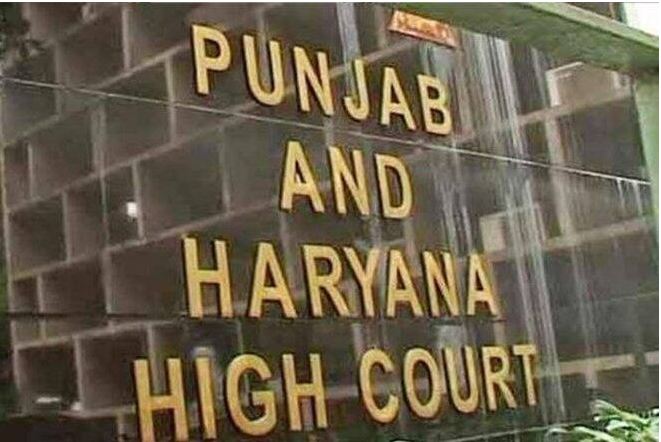The Punjab and Haryana High Court on Wednesday expressed concern over a large number of protection petitions being filed by couples who marry into other religions.
A Single-Judge Bench of Justice Avneesh Jhingan passed this order while hearing a criminal writ petition filed by Loverpreet Kaur and Another. The writ petition had been filed seeking issuance of directions to the respondents to protect the life and liberty of the petitioners from the private respondents (arrayed in the petition).
The petition said the petitioners have solemnised marriage on March 4, 2021 against wishes of their parents. There is an apprehension to the petitioners that they may be eliminated. The grievance is that in spite of representation made on March 4, 2021, no steps have been taken by the respondents.
A number of such petitions are being filed by the couples who performed marriage against the wishes of their parents and relatives.
The non-acceptability of inter-caste marriage is a social problem that needs to be dealt with at multiple levels. The inter-caste factor is not the only reason for non-acceptability of marriage, there are numerous other socio-economic reasons acting as hurdles for young couples from selecting a life partner of their choice, the Court said.
“Over the period it is experienced that number of such petitions are filed as a matter of routine. It is evident from most of these petitions that the day the marriage is performed, a representation is made and in some cases, even the writ petition is drafted/filed on the same very day. In most of the cases, there is even no proof of submission of the representation,” the Court observed.
The petitions of such nature are either disposed of, without commenting on the validity of the marriage and directing the official respondents to consider the representation or notice of motion is issued to the official respondents.
“The couples who are apprehending threat perception have to travel all the way to this Court for completing the formalities for filing the writ petition, this further exposes them to threat,” the Court said.
At this juncture, the court also expressed displeasure at the fact that the directions issued by the High Court to all the District & Sessions Judges in the two States (in Asha & Anr. v. State of Haryana & Ors., vide order dated March 31, 2010) for granting interim protection to such couples, are not being complied with.
During the discussion, it was suggested by the court that one of the ways to tackle the problem is that safe houses should be made available in each district of both the states, as well as in union territory Chandigarh. A website or an on-line module should be provided for such as couples to raise their grievances without being physically present.
Providing 24×7 help desk at the tehsil level for filing of such representations by aggrieved persons or through someone can be of great help.
The Advocates General of both states and Pankaj Jain, senior standing counsel for Union Territory, Chandigarh, have given a positive response to the suggestion of the court.
It is assumed that all three of them along with member secretaries of State Legal Services Authorities can sit together, get inputs and try to find a practically workable mechanism to solve the issue.
Mandeep Mittal, Additional Secretary, Punjab State Legal Services Authority informed the Court that in Punjab, there is a one-stop centre (Sakhi Centre) run by the Health and Family Welfare Department, Punjab under the supervision of the Deputy Commissioner of each District. These centres are working only for women victims.
The court directed the advocate generals of both the states, Senior Standing Counsel for Union Territory, Chandigarh and Member Secretaries of the Legal Services Authorities to make a joint effort for dealing with the issue mentioned above.
“The entire endeavour of the exercise is that some sort of workable mechanism is put in motion to ensure the protection of life and personal liberty as guaranteed under Article 21 of the Constitution of India. Further that only in exceptional cases, the couples have to take trouble to approach this Court alleging infringement of the rights,” the Court stated.
The court fixed the next hearing on the petition on March 22.
Read Also: Punjab and Haryana HC stays deportation of Kenyan of Indian origin


